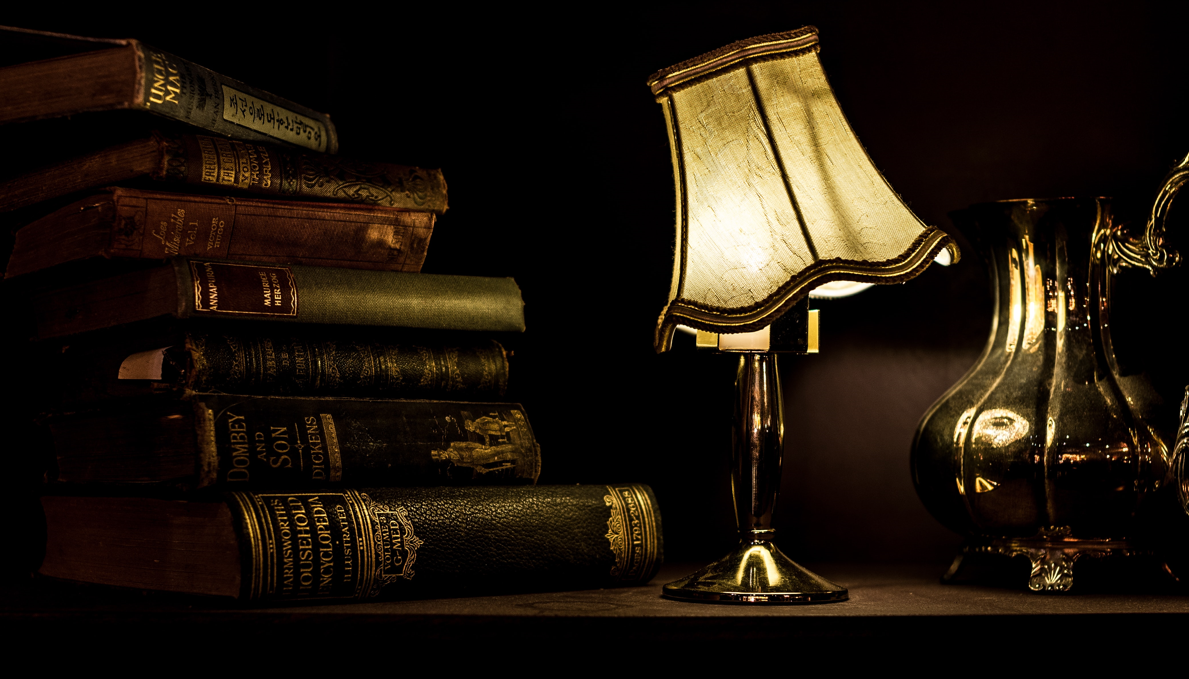From whodunits and police procedurals to spy novels and thrillers, crime fiction is hugely popular
By Karine Vilder
Kidnapping, armed robbery, hostage-taking, bloody murder—crime fiction novels are full of the dark side of human nature, yet readers can’t get enough of them. Céline, for example, a horticulturalist from Terrebonne, Que., estimates that she’s read more than 5,000 over the past 40 years.
“When a book is good, I become obsessed—all I do is read, read, read,” she says. “My day-to-day life is filled with watching flowers grow, and crime fiction takes me completely out of my usual environment. Nothing dramatic or dangerous happens in my life, but in these books, there are all kinds of killers and twisted characters who are capable of doing the worst things. It’s fascinating and gripping.”
“Crime fiction occupies a unique place in the literary landscape,”says Ian McGillis, a novelist and books columnist for the Montreal Gazette. “It’s probably the only genre that straddles the categories of ‘popular’ and ‘critically lauded’; that is, people who take their reading very seriously will also find room on their shelves for a form that achieves a significant portion of its sales at airport bookstores.
“I’ve always felt that its popularity has a lot to do with its familiarity: a reader can pick up a new title by her favourite crime novelist—indeed by nearly any crime novelist—secure in the knowledge that all the essential elements will be in place and that the guilty party will have been caught by the end. Within those conventions, of course, there is endless room for variety and individual approaches.”
Jean Pettigrew, publisher and literary editor at Éditions Alire, a Quebec publishing house specializing in crime fiction and fantasy, thinks the genre’s popularity is a result of its broad appeal. “What sets crime fiction apart is that just as many men as women read it and it offers something to both teens and people in their 90s,” he says.
“Canada has always pulled its weight in this genre,” McGillis says, “and within Canada, Quebec is particularly strong: Louise Penny and Trevor Ferguson— writing as John Farrow—are probably the leaders of the pack, but there are many more.”
The Suspense Factor
In 2021, thrillers and mystery and detective novels together accounted for one-quarter (26 per cent) of all the fiction bought in Canada, according to BookNet Canada, which supplies the weekly bestseller lists used by Canadian newspapers including The Globe and Mail.
Why do we enjoy crime fiction so much? There are several reasons, but the most obvious boils down to a single word: suspense.
“Often, all you need to read is 10 or 15 pages to be hooked,” says Pierre, a retired dentist from Montreal. “You just have to know what’s going to happen next and where the investigation will lead. I wouldn’t make a very good Sherlock Holmes, but every time, I can’t help myself: I have to use my ‘little grey cells’ to figure out the guilty party’s identity.”
Penny is one of this country’s bestselling writers in any genre (and a Member of the Order of Canada). Her police procedurals featuring Chief Inspector Armand Gamache have won her multiple awards. She, too, emphasizes the playful aspect of mysteries: “A kind of game begins between the reader and the main character, and many will try to guess before the book ends. Because it’s not a passive kind of reading, it’s not long before people get involved.”
Then we have what we might call the cheap thrills: we like being afraid—as long as the doors to the house are double-locked and the covers are pulled up to our chin. “We go towards the danger knowing that it won’t be dangerous,” explains Gaëtan Roussy, a psychologist and vice-president of the Association of Psychologists of Quebec. “Daily life is full of stress and uncertainty, and people need to turn to something that won’t deny the danger but focus it. The thriller is like a box: it confines the horror to a particular place, and we can leave it there. We can face the unknown in a reassuring way because the situation is completely under control.”
Penny puts it this way: “For every story, there’s a beginning, a middle, and an end, and that’s comforting. Unlike what can happen in real life, the good guys usually win, and the bad guys get caught.”
The Forces of Darkness
Those bad guys are key to any detective novel worthy of the name. Without them, there would be no homicides or incredibly twisted crimes. “Most people are fascinated by outsiders—those who don’t fit into social norms and who, for that reason, act as they please without asking themselves too many questions,” Roussy says. “What caused this? What pushed them to cross the line? People want to understand this, and one way to do so is through detective novels.”
“Thrillers allow us to see what’s happening in the minds of serial killers and people who are not at all like us,“ Pettigrew says. “We have access to their darkest thoughts but also to their psychological motivations. And it’s reassuring to see that, even if we have a lot of problems, at least we don’t have those ones.”
Detective novels can help us gain a deeper understanding of human psychology, but that’s not all. “They deal with the human condition in general, and they give us the opportunity to explore all kinds of worlds or situations,” Penny observes. “What’s good about detective novels is that there are so many kinds and styles: the traditional whodunit, the crime novel, the spy novel, the legal thriller, the historical thriller, true crime…. Depending on your mood, you can explore the worlds of drugs or prostitution, get to know a couple who are about to kill each other, be transported into Nazi Germany, and so on. Detective novels allow us to live all kinds of experiences vicariously, and, of course, people keep asking for more.”
Staff Suggestions
We asked our book-loving staff members and colleagues about their favourite crime writers and got these enthusiastic recommendations.
• Aline: When I connect with characters in a series of detective novels, I devour the whole series. In addition to Louise Penny’s books, I never miss a Harlan Coben, especially the ones featuring former NBA basketball player Myron Bolitar and his colourful colleagues, or an Elizabeth George, with Detective Inspector Lynley and his one-of-a-kind Sergeant Barbara Havers. I also really like the two profilers, Pierce Quincy and Rainie Conner, in Lisa Gardner’s books.
• Murray: If you haven’t read the Queens of Crime—Agatha Christie, Dorothy Sayers, Margery Allingham, and Ngaio March—you’re in for a treat. Among contemporary authors, Anthony Horowitz is a master craftsman of mysteries, and Ian Rankin is a must-read. For something rather different, try Philip Kerr’s books about Bernie Gunther, a private detective solving crimes in Hitler’s Berlin.
• Karine: I recommend The Power of the Dog and the rest of the Cartel series by Don Winslow and Natchez Burning by Greg Iles.
• Francine: I’m a big fan of Louise Penny’s novels. I enjoyed following Chief Inspector Armand Gamache in Still Life, Bury Your Dead, and A Trick of the Light, but I loved All the Devils Are Here, which takes him to Paris.
• Sandrine: When I see a new book by Swedish writer Camilla Läckberg, I jump at it. Her latest, Silver Tears, takes us into a world very different from the one usually depicted in her work, but it’s riveting.
All these books are available at Indigo bookstores and at indigo.ca.





